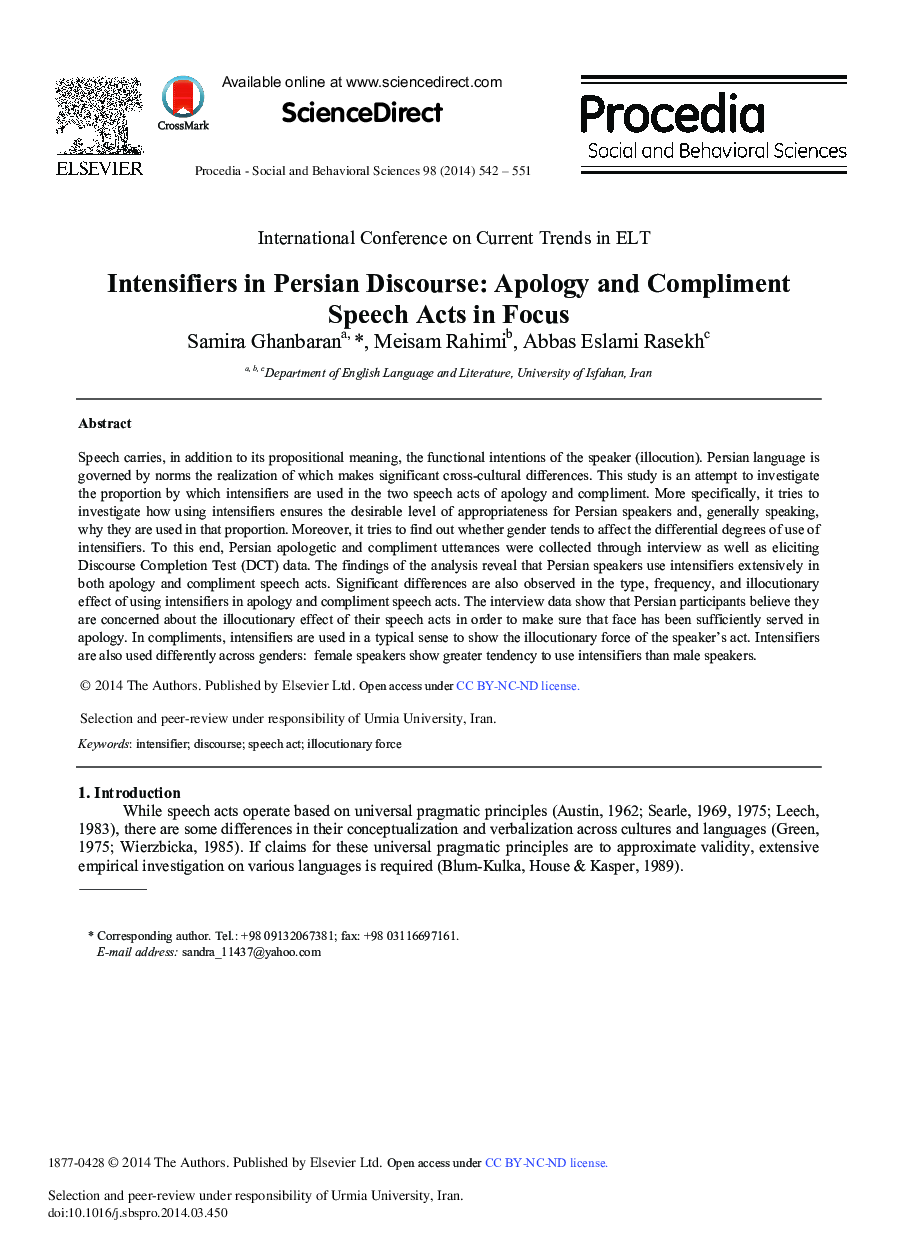| کد مقاله | کد نشریه | سال انتشار | مقاله انگلیسی | نسخه تمام متن |
|---|---|---|---|---|
| 1118477 | 1488452 | 2014 | 10 صفحه PDF | دانلود رایگان |
Speech carries, in addition to its propositional meaning, the functional intentions of the speaker (illocution). Persian language is governed by norms the realization of which makes significant cross-cultural differences. This study is an attempt to investigate the proportion by which intensifiers are used in the two speech acts of apology and compliment. More specifically, it tries to investigate how using intensifiers ensures the desirable level of appropriateness for Persian speakers and, generally speaking, why they are used in that proportion. Moreover, it tries to find out whether gender tends to affect the differential degrees of use of intensifiers. To this end, Persian apologetic and compliment utterances were collected through interview as well as eliciting Discourse Completion Test (DCT) data. The findings of the analysis reveal that Persian speakers use intensifiers extensively in both apology and compliment speech acts. Significant differences are also observed in the type, frequency, and illocutionary effect of using intensifiers in apology and compliment speech acts. The interview data show that Persian participants believe they are concerned about the illocutionary effect of their speech acts in order to make sure that face has been sufficiently served in apology. In compliments, intensifiers are used in a typical sense to show the illocutionary force of the speaker's act. Intensifiers are also used differently across genders: female speakers show greater tendency to use intensifiers than male speakers.
Journal: Procedia - Social and Behavioral Sciences - Volume 98, 6 May 2014, Pages 542-551
